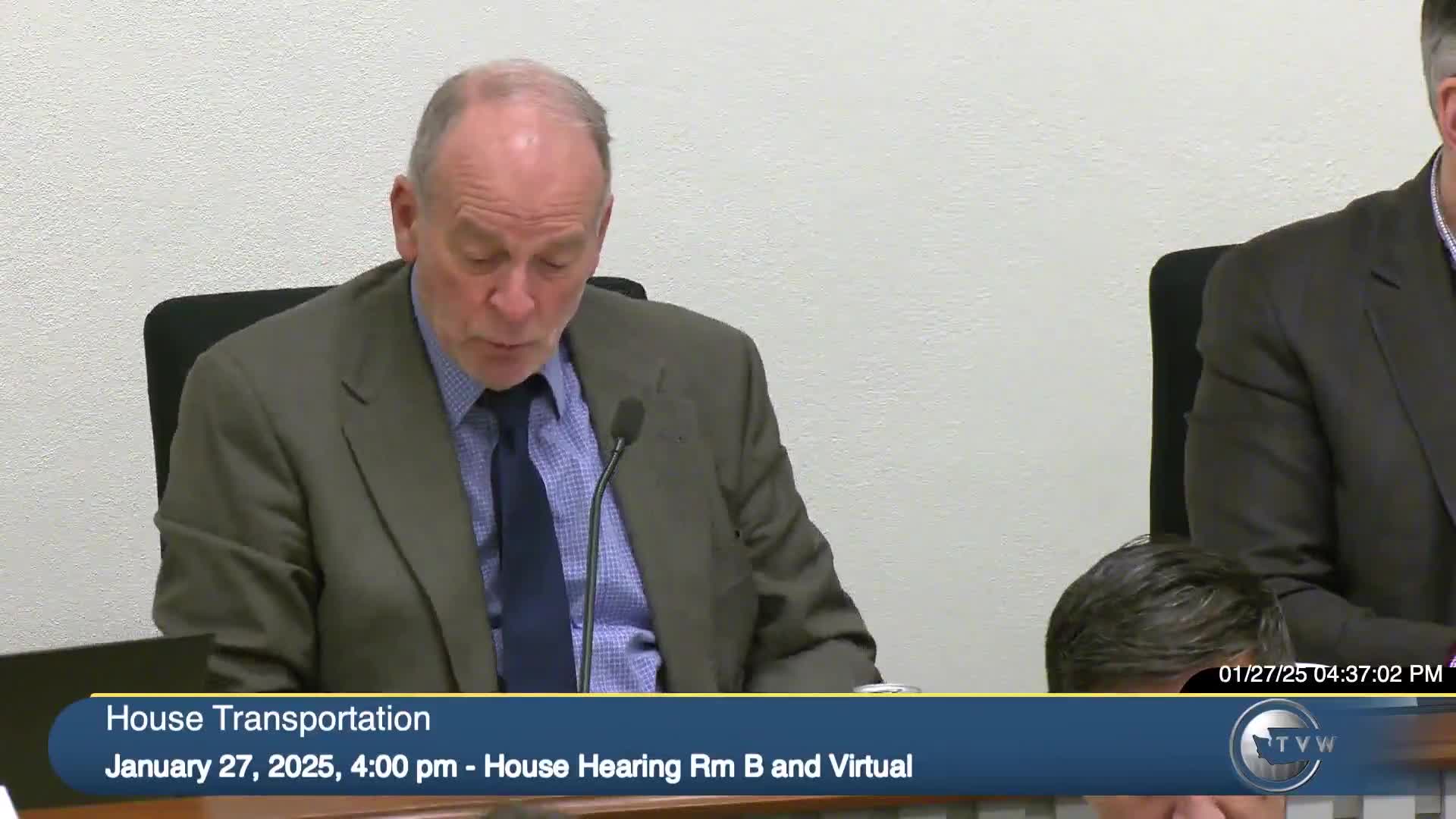Bill would let transit riders serve as voting members on PTBA boards; committee hears competing views on accountability
Get AI-powered insights, summaries, and transcripts
Subscribe
Summary
House Bill 1418 would allow public transportation benefit areas (PTBAs) to appoint up to two voting transit‑using members to their governing boards, require training on open meetings and public records laws, and require meetings to be reasonably accessible by transit. Supporters said rider voices improve decision‑making; opponents raised concerns
The House Transportation Committee on Jan. 27 took testimony on House Bill 1418, which would allow public transportation benefit areas (PTBAs) to appoint up to two voting members who primarily use public transit to their governing bodies. One of those members should represent a community‑based organization if possible; if not available, both appointees may be individual transit‑dependent riders. The bill requires transit‑using members to receive training on the Open Public Meetings Act and the Public Records Act and directs PTBAs with transit‑using members to hold meetings at times and places reasonably accessible by transit. The bill would take effect Jan. 1, 2026.
Committee staff explained the current structure and scope of PTBAs. David Monnke, staff to the committee, said Washington has 32 transit systems operating under six governance structures and that 21 operate as PTBAs. He summarized the bill’s governance change: a PTBA’s governing body, currently made up of local elected officials, could augment its membership with up to two transit‑using voting members under the bill.
Representative Joe Timmons, sponsor of the bill, told the committee that riders bring “a unique experience and a unique perspective and expertise” that can help governing boards make decisions on routes, service levels and emergency planning. “Transit riders have a unique perspective and expertise that they can help with our transit boards in making decisions that impact transit ridership and, routes and so forth,” he said.
Supporters said including transit users at the decision‑making level would improve responsiveness and cultivate future leaders. Joe Kunzberg, testifying remotely, said the bill should be mandatory but expressed strong support for the concept, arguing that riders could put operational items like evacuation plans, service retention and technology on board agendas. Anna Zivarz of Disability Rights Washington cited Intercity Transit (which has a citizen representative structure) as an example of citizen participation that has led to successful leadership paths from advisory roles to board appointments. Judy Jones, a lifelong transit rider and Community Advisory Committee member in Skagit County, said citizen board participation strengthens community buy‑in for transit funding and projects.
Opponents raised accountability concerns. Charles Prestrud of the Washington Policy Center said adding appointed, non‑elected board members would weaken accountability because appointees are not directly elected by transit district voters and would not face a vote of the public. “Adding more appointed members who aren't even elected officials will further weaken agency accountability,” Prestrud said.
Committee members asked how the proposal interacts with existing citizen advisory committees and whether local boards could already provide rider input without changing board composition. Representative Timmons said the proposal is voluntary and intended to standardize an option for boards that want direct rider representation at the governing level; boards that prefer existing advisory processes could decline to appoint transit‑using members.
The committee heard that the bill carries no fiscal note impact for state agencies and that it is structured as a local option rather than a mandate. Testimony concluded with proponents and opponents outlining their respective policy priorities, and the hearing record closes the matter for the committee’s consideration.
